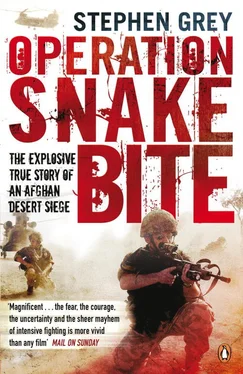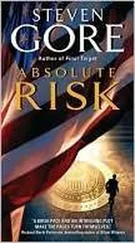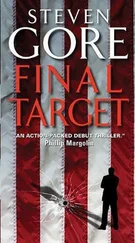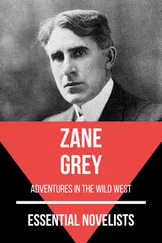Those with metal detectors worked furiously meanwhile to clear a certain path to the landing site for when the medevac chopper came in. It was hardest for those, like most, who were told to stay put. No one wanted another blast to make things even worse . Wylie’s face looked totally blank and shocked. He would remember that for almost an hour he just sat still, too choked to move one inch.
Eventually the medevac Chinook came in and took the injured away. Then it all sunk in. They were in fading light in the middle of the minefield, and no one knew whether Daz Gardiner was alive. He was close to them all. From Salisbury, Wiltshire, he was on attachment from the Royal Electrical and Mechanical Engineers as the BRF’s armourer: fixing weapons. Everyone knew him. He had become one of them. A keen skydiver in his spare time, he always had something to say. He kept them all amused.
Vincent knew that Daz was not going to make it. So did Hodgson. He had seen the look of his eyes. But this was not the time to say anything. Everyone had such faith in the medevac choppers and the standard of care back at Camp Bastion. Some of the best surgeons in Britain were said to volunteer to work there.
It broke Vincent’s heart. All he could do was mutter: ‘He had a pulse when he left us. It is in their hands now.’ It was depressing.
A little later the radio message came through. The men were called together and told, ‘Daz didn’t make it.’
It took the BRF another seven hours to clear their way off the ridgeline in the dark – down the slope and back into Musa Qala centre. Other mines and metal objects were found and marked. They were helped by 2 Yorks soldiers, who cleared up the hill from the town and met them halfway.
The next morning Wylie got on a helicopter for Camp Bastion and a week later returned to the UK. ‘I didn’t want to be involved in another similar incident. I didn’t feel comfortable in a vehicle,’ he recalled.
The rest of the BRF had been brought back to Bastion for a rest too. But the day before Gardiner’s repatriation ceremony – when his body was carried by pallbearers on to a plane for the flight home – most of them were flown back to Musa Qala, missing it all. The following day, Brigadier Mackay came out to see them. They were in a raw mood, almost rebellious. The soldiers asked the brigadier why they were out in the mine-strewn desert in the old design of WMIKs, while soldiers were driving round Camp Bastion in a newer version that had better mine protection.
The soldiers recalled Mackay telling them: ‘You need to pick yourself up. You look like a unit that’s down.’ The BRF burned with resentment at that and reacted badly. It was not helped by the fact their OC, Tony Phillips, was away on his R&R.
Mackay, who was perhaps prouder of the BRF than any other unit, would harbour no resentment though. ‘Tough soldiers speak their minds,’ he said later, ‘but there was a tough message I had to give them too.’ The timing of his trip had been quite deliberate. He had heard the BRF’s morale was plummeting. He remembered telling them that ‘after all the success of your tour, this is not how you want to be remembered’.
Some used to think enviously of the BRF’s desert mission as a kind of Mad Max fantastic adventure. Officers used to tell Phillips: ‘It must have been brilliant!’ But he used to say: ‘No. It was unpleasant, dangerous. We were doing a job.’
The day of the mine strikes that killed Corporal Gardiner was also the day of the handover of Musa Qala from command of the 2 Yorks and Simon Downey to the Household Cavalry headquarters under Ed Smyth-Osbourne, who had moved up from running Garmsir. By now, Mullah Salaam was officially the district governor, and, after his trips around the countryside talking to people at shuras , he was pressing to see when the promised aid would actually be delivered. The relationship between the British officers and Mullah Salaam was often comical. For one, they did not quite appreciate Mullah Salaam’s personal hygiene – in particular waking up in the morning and walking out of their quarters, right next to Salaam’s, only to see a turd steaming by their feet.
In February, Colonel Ed sent his C Squadron under Major Paul Bedford to launch a combined operation with the US Green Berets to attack the Taliban stronghold in the villages of Kariz de Baba, one of the main valleys in the desert east towards Kajaki. Among them was one rather special forward air controller, Second Lieutenant Harry Wales, and third in line to the throne. It was on 28 February, while Prince Harry was on this operation, and getting his first real experience of combat, that it was revealed (on an American website) that he had secretly been in Afghanistan since 13 December. Harry wanted to stay on regardless, but, back in London, the chief of the defence staff, Sir Jock Stirrup, ordered his immediate recall home. Captain Andy Dimmock, a fire support commander attached to the Household Cavalry, said the Prince had been ‘treated like any equal’. Disguised by a radio call sign, he spoke to pilots as Widow 67. ‘He wasn’t Prince Harry. He was one of the many forward air controllers we had in theatre, and he was truly treated equally up until the point where he was taken out.’ Interviewed on his return, Harry said he would ‘love to go back out’ to Afghanistan ‘very, very soon’. ‘Once you are back from operations everything is a bit of an anti-climax, you go back to your unit and there you are, day-in day-out, the same routine, nothing changes… In operations, you are kept on your toes the whole time. That’s what guys join up for I guess, that adrenalin.’
By now Musa Qala was on the war tour of visiting VIPs to Afghanistan, an example of the way to capture a town with minimal destruction and arrive with a plan to win people’s hearts. ‘The eyes of the world will be on Musa Qala,’ said the US ambassador, William Wood, when he visited the town.
When I returned in March 2008 the impact of development efforts could be seen. The mosque project was still being held up by bureaucracy, but a small road had been built, the market and the health clinic had reopened, a school was refurbished and teaching more than 800 pupils (though only boys), and a cash-for-work scheme was employing more than 300 people daily.
Salaam, however, remained unsatisfied with the pace of change.
* * *
I got a ‘bluey’, an army airmail letter, back home in London from Jake and his B Company, dated 29 February. He wrote with greetings from Sangin and an update:
Our time in Musa Qala after you left was broadly successful. There was still quite a lot of fighting as many of the Taliban moved back and we attempted to clear them. The lads were fantastic as ever and UK casualties were relatively light – sadly we had a couple of ANA killed in the last week.
Sangin is proving an interesting place. In many ways it is less developed than Musa Qala and certainly seems to be more heavily influenced by the Taliban. We’ve had a couple of quite cheeky fights, one in particular where we were outflanked and for a time I thought we would come off pretty badly. I think we were saved by accurate mortar fire and the good old Americans and their planes. I’m not sure how the lads keep doing it day after day but they do and in this particular fight there were some extraordinary acts of bravery for which I hope they are recognized. I think the death of Jonno more than anything else has made the Company very close and nobody wants to let anybody down.
The last three months of the 52 Brigade tour involved some fierce fights for many and a heavy toll of injury. The Danish battle group in charge of the central area of Helmand had tried hard to extend the zone of relative security around Gereshk. But in March the Taliban were creeping back in. A suicide bomber struck in the centre of Gereshk, killing two Danish soldiers, one Czech soldier and an interpreter. Then, at the end of March, two Danish soldiers were shot dead in the space of five days. Of all valiant acts I heard about from the soldiers, the story that stayed longest in my mind was of two Coldstream Guard mortar controllers who separately on successive days ran alone across open fields under fire to the Danish front line – amid scenes of utter confusion around. There was a moment when one of them, Sergeant Tony Bolton, sat in a besieged trench while comforting an injured Dane on his lap, firing his rifle with one hand and holding a radio handset with the other, calling in a mortar strike on a position just yards away. It seemed an odd business that neither got a share of the gallantry medals later handed out.
Читать дальше












